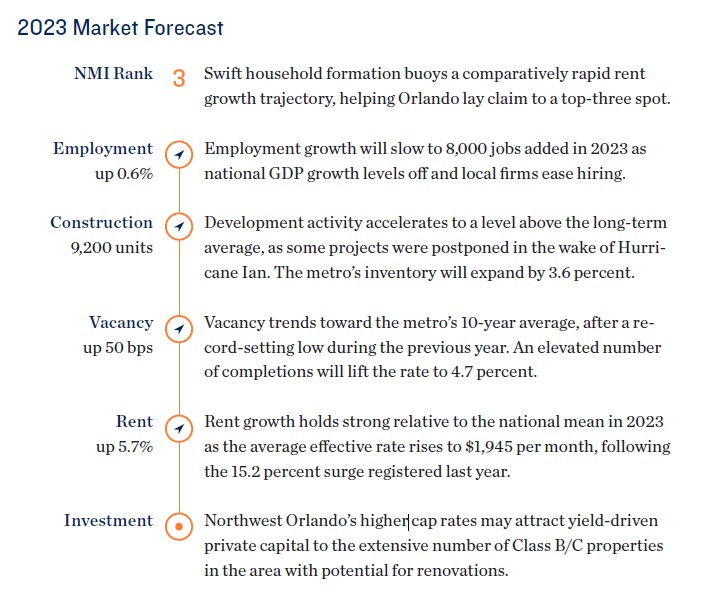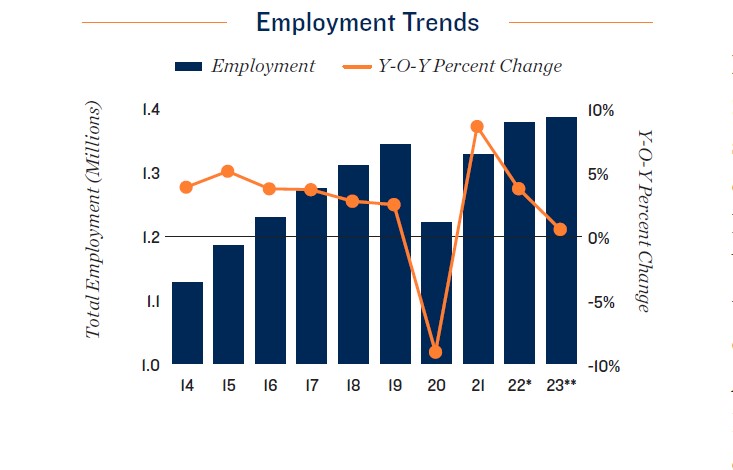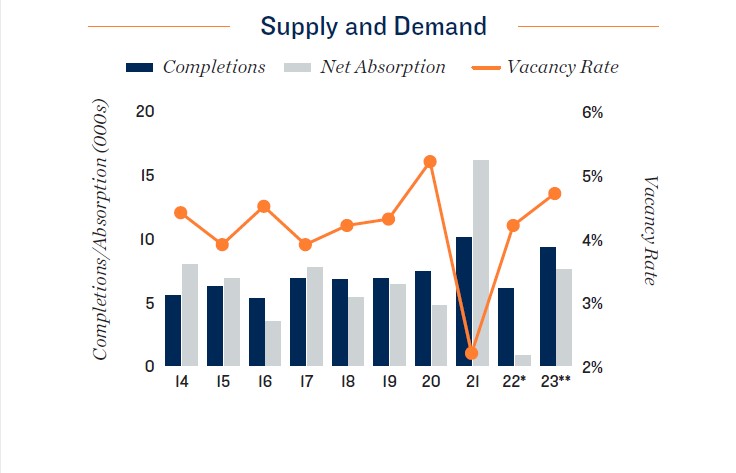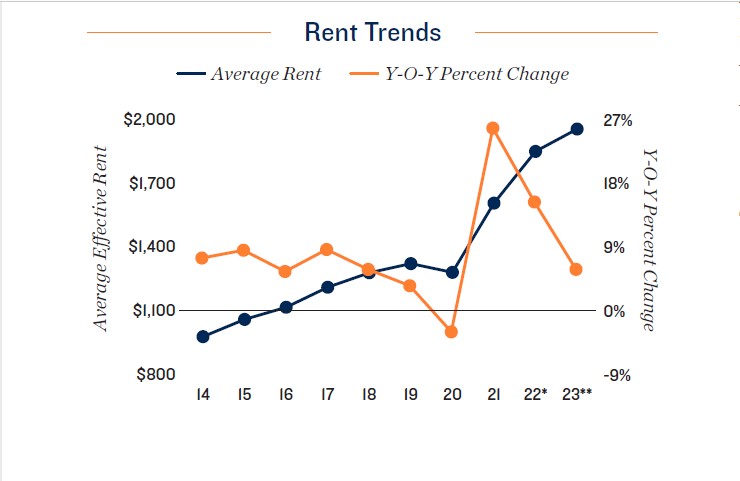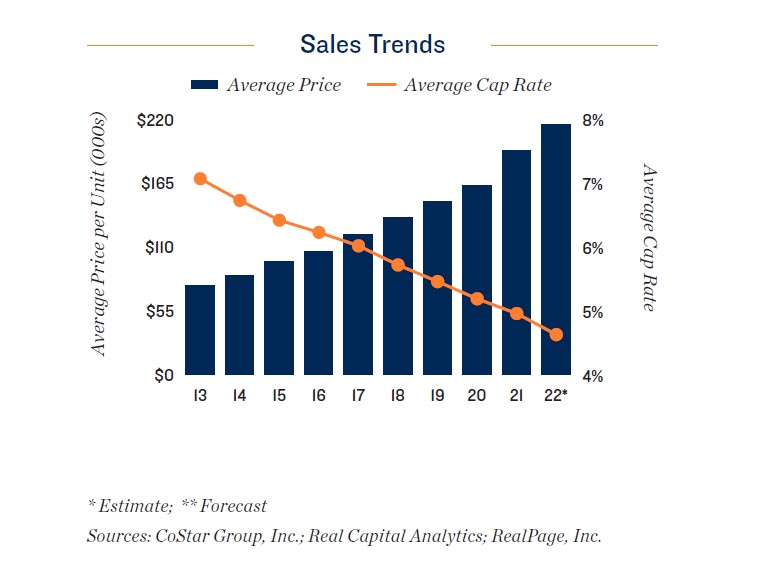Favorable Living Costs, Tourism Backbone and Corporate
Relocations Fortify Demand-Supply Balance
Desirable living conditions keep rental market leveled. Completions will elevate in
2023 as last year’s postponed projects populate the pipeline. An above-average period of
supply additions will help bring the market back to equilibrium, even with the stronger
demand for rentals expected this year. Robust population growth is sustaining a household
formation pace that nearly triples the national rate. Net in-migration is being driven
by lower living costs compared to the Northeast and solid job availability, especially in
the leisure sector. Orlando boasts the second-largest arts, entertainment and recreation
employment base in the nation. Other aspects of the local economy are also expanding.
A bevy of corporate relocations and expansions from Amazon, Astronics Test Systems,
Iceland-based SAHARA, among others, will support the metro through potential upcoming
economic volatility. All of these factors are contributing to renter demand, along
with elevated interest rates, which have caused some prospective first-time homebuyers
to postpone ownership amid a growing affordability gap between average rent and the
typical mortgage payment. Tenacious housing needs will provide a backstop for vacancy
among additional supply pressure and a cooling economy.
Stable investments, backed by robust fundamentals, continue to attract buyers.
Investors’ purchasing power has been constrained by the actions taken by the Fed to curb
inflation, causing some sellers to shelve deals to wait out the interest rate hikes. However,
some buyers are finding that the strong rent gains anticipated in Orlando this year could
offset increased debt costs. Low vacancy and high rent growth may temper the impact on
pricing compared to other markets amid intensified borrowing costs. The Downtown and
I-Drive areas have reported recent lifts in transactions from previous years, likely due
to the stability garnered from high median incomes and population density. Properties
trading here are typically luxury apartments with cap rates below the metrowide average.
